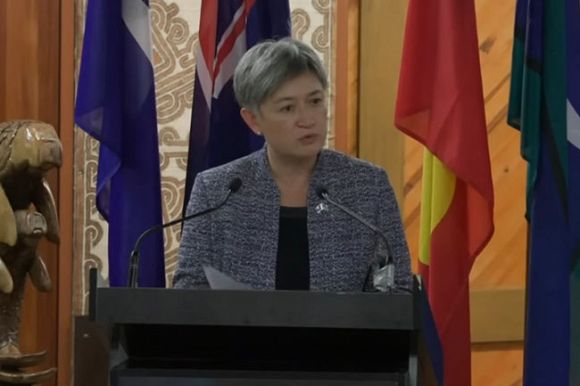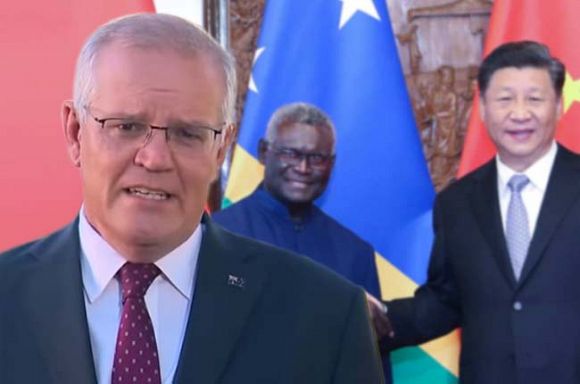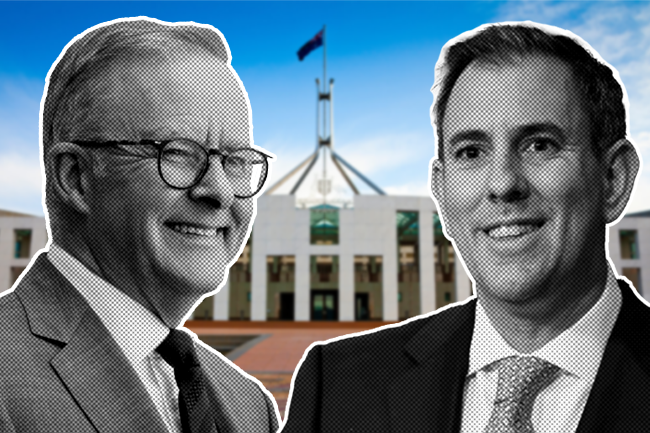The Albanese Government has acted promptly to begin the process of restoring Australia’s reputation in the region, as Alan Austin reports.
*Also listen to the audio version of this article on Spotify HERE.
WE DON’T have far to look to see the value of Australian aid when well-planned and effectively targeted.
Villages located on Timor-Leste’s river plains are prone to inundation when river levels surge, causing tragic fatalities as well as extensive loss of housing, livestock, crops and material possessions.
In response to this, CARE Australia and other aid agencies have implemented an effective Disaster Ready project in collaboration with the Timorese disabled persons' organisation, Ra’es Hadomi Timor Oan. Among local people being trained in detecting early warnings of potential disasters is young villager, Julmeira Lopez.
Julmeira said:
My role in the committee is to monitor the water level in the local river, using the water level meter painted on the pillar of the bridge, and then to disseminate early warning information to the community to advise preparation and protection methods accordingly.
[We receive] weather updates from Civil Protection by text messaging and television news. I pass this information to the community by using megaphone announcements. CARE helped us to paint the bridge and install a billboard displaying what to do before and during disasters...

Welcome expansion
The incoming Albanese Government increased overseas aid in the October Budget to $4,588 million from a miserable $3,755 million allocated in the previous Budget. (See ‘Table 6.4.1: Trends in the major components of foreign affairs and economic aid sub-function expenses’.)
Thus begins the task of restoring Australia’s generosity to neighbours in need – and Australia’s reputation as a global good citizen – after the neglect of the recent Coalition years. See blue chart, below.

This year sees a welcome return to partial indexation of the base aid budget, at 2.5% per year, after the Morrison Government froze funding at $4,000 million in 2018.
The largest increases in aid funds will target Southeast Asia and the Pacific. A record high of $1,850 million will go to the Pacific islands — $1,501 million in “base” aid and $346 million in temporary measures. That’s around 40% of the aid program.
Much of this additional funding is expected to take the form of direct budget support to governments to bolster their COVID-19 response efforts. Southeast Asia is set to receive $114 million in temporary measures in 2022–23.
Australia and Timor-Leste
Relations between these two close neighbours are gradually being restored after decades of significant strain. Foreign Affairs Minister Penny Wong travelled to Dili last September to meet with the Timor-Leste President, the Prime Minister and her counterpart, Adaljiza Magno, Timor-Leste’s Minister of Foreign Affairs and Cooperation.
At a joint press conference, Wong announced an additional $20 million in a COVID-19 response package for programs managed and delivered by the Timor-Leste Government. That is on top of the $100 million already allocated for base development assistance.
Wong said:
The funds will be used to support payments for children and pregnant mothers, through the Bolsa da Mãe Jerasaun Foun program, and Timor-Leste village's development program...
And the final area we are also supporting with the additional funding is skills training linked to our Labour Mobility Scheme.
More than just money
Important elements of projects like CARE Australia’s disaster prevention initiatives in Timor-Leste are increasing gender equality and reducing gender-based violence by ensuring women’s active participation in the programs.
Julmeira Lopez believes empowering women to lead in remote areas is crucial, particularly in patriarchal societies where deep-rooted gender norms can create major barriers to women’s engagement and leadership:
“Not only have I been empowered and skilled to support my community from life-threatening events, but I can see the practical value of women’s participation in disaster risk reduction activities. The way we seek to resolve issues derives from a mother’s instinct which takes into account the needs of everyone in the family. This is similar when we are active in the community; we ensure everyone’s needs are considered.”
Much more yet to do
After eight years of Coalition governments, Australia’s overseas aid relative to gross national Income (GNI) remains unacceptably low. The historic target has been 0.7% of GNI, which Australia came close to achieving during the Whitlam years. It has been downhill from there, ending up at a miserable 0.20% last year.
According to Dr Angela Clare of the Foreign Affairs, Defence and Security Section of the Parliamentary Library, the percentage is not expected to change this year:
‘This continues to place Australia well below the OECD Development Assistance Committee (DAC) country average of 0.32%. In 2020 Australia ranked 21 out of 29 OECD DAC countries on the generosity of its aid, measured by the ODA-to-GNI ratio.’
The Australian Greens have called for Australia’s Official Development Assistance (ODA) to be set at a minimum of 0.7% of GNI, ‘with provision for increases in the event of natural disasters or conflicts requiring major humanitarian interventions and climate reparations’.
Most developed countries appear to have targets at around 0.4% of GNI.
Australia can certainly do far better than its current meagre level. But at least a start appears to have been made.
To donate to CARE Australia or find out more about its efforts towards supporting women, defeating poverty and withstanding climate disasters and other crises, visit care.org.au.
*This article is also available on audio here:
Alan Austin is an Independent Australia columnist and freelance journalist. You can follow him on Twitter @alanaustin001.
Related Articles
- Australia needs to stop patronising the Pacific Island states
- Australia's treatment of whistleblowers will be its damnation
- Public inquiry is showing Australia’s unheard call for new foreign policy
- Transparency lacking in Australian defence policy
- A reflection of decades of failed U.S. national security policy
 This work is licensed under a Creative Commons Attribution-NonCommercial-NoDerivs 3.0 Australia License
This work is licensed under a Creative Commons Attribution-NonCommercial-NoDerivs 3.0 Australia License
Support independent journalism Subscribe to IA.














